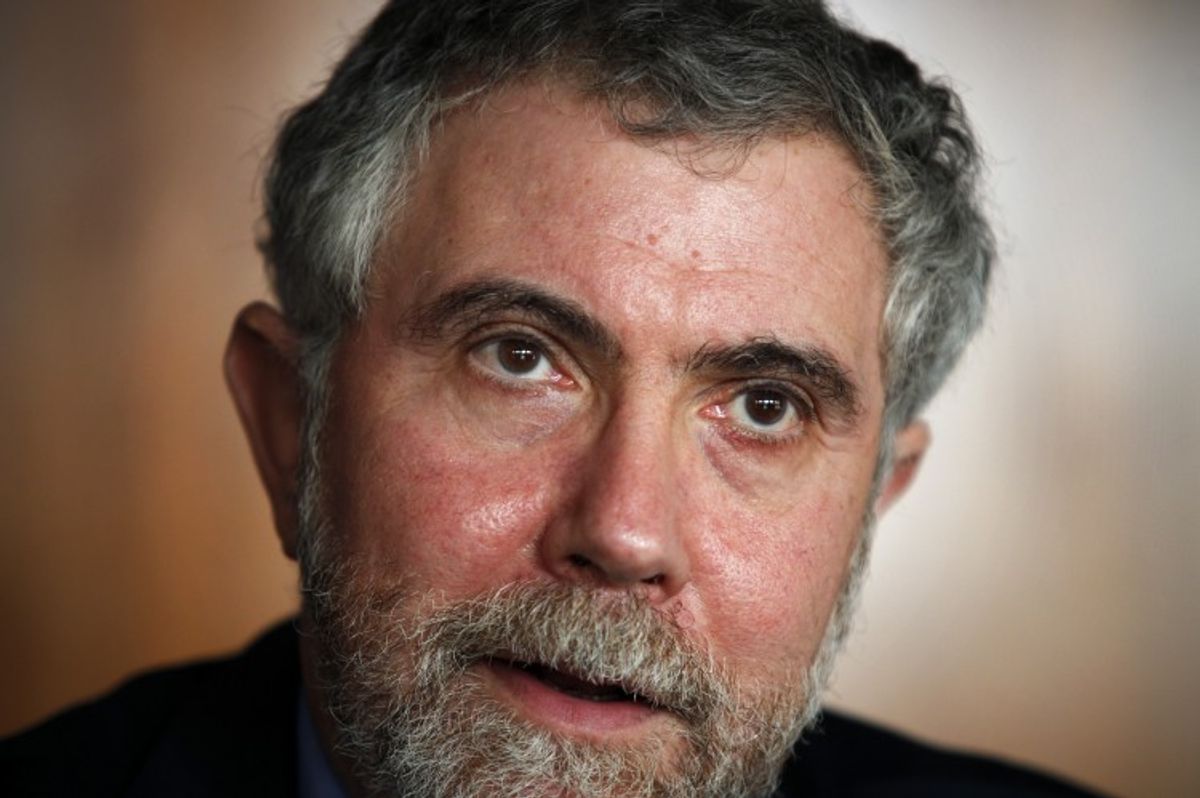In his latest column for the New York Times, award-winning economist and best-selling author Paul Krugman claims that the criticism of the Federal Reserve's aggressive monetary policy is incomprehensible from a policy standpoint and can only be understood as an expression of class interest on the part of a tiny sliver of the 1 percent.
"Quite simply," Krugman writes, "easy-money policies, while they may help the economy as a whole, are directly detrimental to people who get a lot of their income from bonds and other interest-paying assets — and this mainly means the very wealthy, in particular the top 0.01 percent."
While Krugman believes the issue can be understood through a class-war lens, he doesn't discount the role of ideology and simple partisan politics, either. That's how he explains the fact that the same people who have been warning of looming hyper-inflation since at least 2009 are still doing so today, despite events having proven them wrong over and over again.
"Who are these always-wrong, never-in-doubt critics?" Krugman asks. "With no exceptions I can think of, they come from the right side of the political spectrum," he continues, chalking the right's aversion to the Fed's current policy as an outgrowth of its unwillingness to do anything that might "legitimize the notion that government action can ever have positive effects."
"[B]ecause once you start down that path," Krugman snarks, "you might end up endorsing things like government-guaranteed health insurance."
Ultimately, however, Krugman implies that the number one factor motivating the right's opposition is the shrinking value of bondholders' holdings in an "easy money" environment. "The really big losers from low interest rates are the truly wealthy — not even the 1 percent, but the 0.1 percent or even the 0.01 percent," Krugman argues. He notes that circa 2007, "the average member of the 0.01 percent received $3 million (in 2012 dollars) in interest." By 2011, Krugman claims, that number had dropped by around 9 percent (of 2007 income).
And that, Krugman says, is how you explain monetary politics in America today:
Before the financial crisis, many central bankers and economists were, it’s now clear, living in a fantasy world, imagining themselves to be technocrats insulated from the political fray. After all, their job was to steer the economy between the shoals of inflation and depression, and who could object to that?
It turns out, however, that using monetary policy to fight depression, while in the interest of the vast majority of Americans, isn’t in the interest of a small, wealthy minority. And, as a result, monetary policy is as bound up in class and ideological conflict as tax policy.
The truth is that in a society as unequal and polarized as ours has become, almost everything is political. Get used to it.



Shares